#Text Analysis
Explore tagged Tumblr posts
Text

Love how Harry can always tell Draco's exact mood, thoughts and expression from tiny tells in his voice without even looking at him.
#harry potter and the halfblood prince#Harry Potter#drarry#Draco Malfoy#hpdm#random musings#text analysis#my meta
224 notes
·
View notes
Text
Hey, so a while back, I saw an AMAZING thread from LOTR fans about Frodo cursing Gollum and placing a gea on him and so damning Gollum to inevitably fall into Mount Doom and take the Ring with him—and how this is a recurring theme in the Legendarium where curses and oaths have real power and are not to be messed with. And while again the thread was AWESOME, it also made me think of something.
So we all know how Boromir tries to take the Ring from Frodo in Fellowship of the Ring, and then when Frodo fights back, Boromir screams that he’ll kill them all and curses him and all halflings to darkness. Given how we’ve established that curses have serious power and all of them come to pass—is Boromir laying a curse on Frodo? Because you could argue that it worked on Frodo but all the other hobbits seem to not be damned to darkness (I would argue the Scouring of the Shire doesn’t even count because the hobbits were able to rebuild). So what’s going on? Is it that Boromir didn’t really mean it? Did the curse only fall on Frodo?
#hoping the people that wrote that awesome thread will see this#but also anyone else can feel free to share their thoughts!#lord of the rings#the fellowship of the ring#j r r tolkien#lotr analysis#analysis#text analysis#jrr tolkien#frodo baggins#boromir
84 notes
·
View notes
Text
Incuriouser and incuriouser: Regarding fandom and interpretation.
There seems to be a fandom phenomenon in where a sort of CinemaSins mode of thinking limits the imagination. As in everything in a fantasy world must be detailed and explained to us with little ambiguity to it. Otherwise a fan’s inference within an attempted analysis of the text is just meaningless.
Yet many other viewers would call out a show for any such exposition so clunky and obvious in intention to infodump on the viewers.
See… one of the things I liked about The Legend of Korra fandom back when the show was airing (despite Nick’s best efforts) was that fans thrived with making analytical text posts out of the blanks the show left. The Fridge Brilliance page for the show could be overblown but it was clear that the staff wanted to invite viewers to take a closer look.
For every ATLA purist, there were those who read Korra’s Season 1 arc as opening her Chakras and culminating in achieving the Avatar State. Many who saw Mako as a person who did hurt others but without realizing and honestly being more of a dork at the end of the day.
Basically they used their imagination. Headcanons and theories are the backbone of fandom. Some are weird ideas while others take stock of what the show presents us and make reasonable deductions.
That’s the real problem with some fandoms. They’re too caught up in being “objective” that they forget the fun in being subjective. In having some aspects of the show being malleable in interpretation.
Don't even get me started about ships.
#rwby#korra#the legend of korra#lok#rwby meta#mako#avatar#avatar the last airbender#fandom#fandom nonsense#incurious#headcanons#theories#fan theories#character interpretation#text analysis#doylist#watsonian#media analysis#media criticism#media literacy
13 notes
·
View notes
Text
I have nowhere else to post this, but it's been eating away at my brain for the past few days.
So far, I’ve found two instances of AJR and Taylor Swift lyric parallels. I find them interesting because they work similarly and differently at once, and in different ways. One of them expresses different ideas with similar language, and the other expresses the same idea with different language. It makes me think that, in certain areas, AJR and Taylor Swift function as what I’m choosing to call “parallel lyricists” (maybe there’s an official term for this, but I don’t know it).
In my mind, the lyrical appeal of AJR is that they take abstract concepts or emotions that one might not be able to convey with words and state them in a blunt manner. Think of songs such as Karma, World's Smallest Violin, and Inertia. Basically, they take the complex and make it simple.
Taylor Swift, on the other hand, takes simpler (or at least commonly talked about and well-defined) concepts and ideas and conveys them with intricate language. This includes concepts of falling in love, breakups, heartbreak, and complicated romantic relationships. She takes the simple and makes it complex.
They follow different roads but in strikingly parallel ways.
So let’s analyze them under that lens.
Instance #1: Turning Out Pt. iii and Say Don’t Go


These lyrics, as seen above, are expressing different concepts with similar language. Both songs use the concept of "I'm yours and you're mine", a phrase related to romantic love between two partners, as a template for these lyrics.
Now, to be clear, when I say "different concepts", I'm specifically talking about the use of POV. The POV of the singer is different in these songs. In Turning Out Pt. iii, the singer is uncertain about committing to a romantic relationship, as in the previous two songs in the trilogy, they'd dealt with issues regarding love and how they didn't understand it. So because of that, the idea of yours and mine gets twisted, as while the narrator is only "half [theirs]" (not fully committing to the relationship), the significant other is "all [theirs]" (being fully committed).
In Say Don't Go, Taylor Swift expresses a very similar concept, but from the POV of someone who is fully committed to the relationship seeing that their partner is not. In this instance, there seems to be no uncertainty on the partner's part, given the definitive constraints of "not mine" as a phrase.
In essence, these examples show how language can be used as a mold to express different perspectives in familiar ways, thereby allowing the listener to understand them more easily.
Instance #2: Touchy Feely Fool and loml


These lyrics, on the other hand, express a similar concept with different language. This is a prime example of AJR and Taylor Swift's different lyrical styles.
Touchy Feely Fool discusses a toxic relationship. The singer is clearly bitter about how the relationship wounded them, taking jabs at the perpetrator. But they still find that they can't quite stop caring about them, and self-deprecate because of that.
This is a rather complex emotional cocktail, but AJR uses blunt, simple words to describe it. The lyric is straightforward, but conveys everything the song is about: the hurt, the resentment, the bitterness, the guilt, the desperation, and the hint of love.
In loml, Taylor Swift sings about a similarly failed relationship. The relationship is described as being both completely meaningless and entirely meaningful, a similarly complex sort of conflict as in Touchy Feely Fool. In the lyric, "dancing phantoms" are used to represent both outer judgment and Taylor's self-deprecation, thus being "secondhand-embarrassed". This metaphor and phrase encapsulate the same sort of feelings as Touchy Feely Fool did, feelings of shame and self-hatred. The use of "counterfeit" to describe the relationship also mirrors the concept of not wanting to "give a shit", as if something is fake, or counterfeit, then it doesn't matter. A fake or worthless relationship ending, something "counterfeit" being "dead", ideally shouldn't come with any feelings attached, and yet in this instance, it does. AJR deals with a similar dilemma, as a badly dissolved relationship still seems to leave its mark. Just because it was counterfeit and it is dead doesn't mean you don't still give a shit.
Thank you for indulging me. I think I could legitimately write a paper on this, provided I have enough examples, so if you find any other AJR and Taylor Swift lyric parallels, please send them my way!
#text#text post#ajr#ajr brothers#ajr band#taylor swift#ts#t swift#my analysis#gabbi's analysis#text analysis#song analysis#analysis#media analysis#language#language analysis#lyrics#lyric analysis
10 notes
·
View notes
Text
Am I reading smut? Yes. Is it 11pm? Yes. Have I got a thousand word analysis on text due tomorrow morning? Yes. Have I written more that 100 words? No. Have I got to type then hand write it? Yes. Am i getting any sleep tonight? Probably not.
#smut#ao3#college#procrastination#text analysis#if u see me only no you dont#or yell at me#i need to write this fucking thing
21 notes
·
View notes
Text
That One Dramione Fic That Broke Me.
I’ve been thinking about this fic (The Sun, The Moon, The Truth—hereinafter TSTMTT) for the past week, since I finished reading it, and I realized that I need to write out my thoughts or else I’ll explode. For anyone who’s ready to type ‘BUT YOU CANNOT REVIEW FANFICTION’ this is not a review. This is an analysis.
You know how video essayists sometimes start their videos with a quote from the film or a book that they then go on to analyze, followed by an impactful pause? Imagine that this is a video essay. And it begins now.
[ff: The Sun, The Moon, The Truth by fantomas]

Be a tree, a fearful tree and timid,
Ne’er know peace of heart but tremble always.
Let the rain torment you without mercy
Let the wind pull madly at your tresses.
(From TSTMTT Interlude: The Lovers)
[Pause.]
The first chapter of TMTSTT was published on ao3 on November 2023, and I’ve been it’s loyal reader ever since. When the uploads paused in May, I reread the first three Acts over and over again, looking for clues, trying to guess what was going to happen next. Not to brag, but I guessed a lot. Not because I’m Sherlock Holmes, but because there were clues in every single chapter, and because this fic uses literary techniques that are evident to a seasoned scholar like me. Everything was thought out. The characters, the metaphors, the complex nature of the narrative itself.
The story follows Hermione as she wakes up from a months-long coma with no memory of the last ten years. Harry tells her that she’d spent the two years leading up to the coma in the hands of the mysterious Phantom—the man whose identity is unknown to both Harry and Hermione, and who, as Harry says, held Hermione as his captive, raping and torturing her. But the truth is not as it seems—when the Phantom kidnaps her again, Hermione starts to remember what truly happened to her. And it is one of the most trippy and terrifying journeys.
Memory is a tricky thing. It is a peculiar and fragile construct, shaped as much by our perceptions as by reality itself. It is both a map of our past and a filter through which we understand the present, yet it is unreliable—a patchwork of moments stitched together by emotion, bias, and time. Trauma can fracture it, leaving behind jagged edges and dark voids, while love can amplify or distort it, softening painful truths into something bittersweet. Memory is not just about what we recall; it’s about what we choose to forget, what our minds protect us from, and what might lurk in the shadowed corners, waiting to resurface. In the forests and castle of Hermione’s mind palace, the truth is not what it seems, so much so that we never truly find out what the truth is. Is the Phantom evil? Is Harry evil? Is Hermione evil? Who can say?
I tried to draw a scheme of the time loops in this fic, and what i got were quote some earrings—the snake eating its tail, which, I would argue, is one of the main ideas of this fic. This snake shows up as a metaphor numerous times, and twice—as an actual snake. Time is just as subjective as memory, and just as personal. In this fic, the past, present and future all exist in the same timeline, which immediately makes me think of Saint Augustine’s philosophy. Saint Augustine is one of my favorite philosophers, and he claimed that at any given point in time of the present when we think about the past or the future we can ever only think about it from the point of view of that moment when we think about it. That is, if we think about the past, there is always only present past, because when we thought about the past in the past, there was only past past. The same applies to this fic. The non-existence of the boundaries of time and space are hard to see in the flashback chapters, and yet even in the smallest of glimpses, it is quite effective: one of the first instances is when Hermione sees her self on the other side of the river, battered and bruised, and we know that this is the Hermione from act one, that is Hermione from the future, because we read an identical scene in act one. Flashback Hermione is followed around by a ghost of a Death Eater—that Death Eater is guilty for George’s accidental death and for many other things that happen to Hermione, and although it is never clearly stated whether that Death Eater ghost is Draco from the future, I think it’s safe to say that it is. The Death Eater ghost is the same Phantom that haunts Harry and makes him lose his mind—he comes from the future, yet he affects the present. There also an interesting tid bit of Narcissa describing flashback Draco as PhantomDraco which makes us wonder whether she can also see into the future or whether the time frames have blurred in her eyes too. My favorite blurring of the boundaries of time and space, however, is the scene where Draco meets Hermione’s ghost a few days after the Battle of Hogwarts. The ghost is from the future. She starts haunting him from then on, awoken by her own name coming from his lips. The story takes a full circle when we realize that Hermione haunts Draco because he’s the one who killed her and she is only visible to him because he ate her. This story is wild, isn’t it? The tragedy lies in the fact that Draco did everything he could to keep Hermione alive so she wouldn’t come back to haunt him, get eventually it is his actions that cause the string of events that lead to her becoming his personal ghost.
One thing I noticed was the use of seasons, weather. There was lots of mention of snow, water and ice, then fire, heat, flames. There was also a lot of metaphorical usage of the sun and the moon, which makes sense because it is in the title, but while reading I kept wondering what was the reason for it. In part one, snow, ice, and water symvolize Hermione’s inability to fully feel the consequences of her trauma and her “frozen” sense of self. The water reflect her deep yearning to recover what she had lost. There is a particularly vivid scene in one of the earliest chapters when Hermione where she watches the river flow by as she reflects on what happened to her. However, these memories are also “frozen,” which is why the water is cold, and there is ice in the river. The pivotal element moving forward in act two is fire. It is the first thing she pays attention to when she finds herself in the Manor. In later chapters of act two, Astoria’s funeral fire awakens one of the most deep-seated, although false memories hidden in Hermione’s mind. Fire gradually melts the ice and snow confining Hermione’s mind and sense of identity. In the last chapter of act two, when the drawing room is set on fire, the flames make Hermione remember the truth. If we dare call it the truth.
I don’t think it’s that important to explain the meaning of the sun and the moon, and in this fic that meaning is quite traditional, the moon standing for something that is hidden (half of Harry’s face in the moonlight, the other half hidden—chapter one), and the sun is symbolizing clarity and rebirth, and is mostly embodied by Draco as he is often described as illuminated by sunlight, even if his eyes resemble “two full moons”. You might disagree that he is the good one, and he isn’t, BUT. Although we can never be sure what the truth of Hermione is, we can be sure that Draco was and always will be the key to that truth because he is the mastermind, he is the one in control, he knows the truth and is ready to do anything to be the only one to know it, so much so that he kills the old witch who tells him his future in fear that she might tell his secrets to others. He also symbolizes rebirth because he literally is reborn after he makes a horcrux—his physical appearance changes, making him terrifying and overwhelming—and he is also a vessel for Hermione’s transformation, as she becomes a ghost after going through his digestive system. In one way or both ways, Draco is the key to both of theirs immortality.
Transformation, in my eyes, is another key aspect of this fic. Not only Hermione’s aforementioned transformation, but Draco and Harry’s too. Let’s talk about Harry now. He is the only side character who gets whopping two chapters from his POV, same as Draco, which puts him into a position of being as important of a character as Draco, and just as mysterious. (And just as evil. Or really?) Harry, unlike other characters, goes through his transformation early on in the story while Hermione and Draco are still in tact. He transforms into his mad-self when Hermione accidentally flips a stone of the Hogwarts castle on top pf him and George. George dies, fuelling Hermione’s eternal guilt, while Harry survives, suffering a months-long comatose state, which mirrors Hermione’s coma that she wakes up from after he tortures her. After waking up, Harry is eerily different, yet not so different as to make Hermione believe he’s evil. Although Hermione convinces herself that Harry did not die in the accident, Harry claims that she did. Although Harry says that he doesn’t blame her for what happened, Hermione blames herself. Harry’s corruptive transformation ascends slowly and mostly off-page, yet we know where his way leads to even though we have no proof of him doing anything wrong, ever.
Harry becomes tortured with visions of the future, and knowing what is going to happen to him, he tries, just like Draco, to do everything he can to turn the wheel of fate sideways, yet, just like Draco’s, his visions come true. Knowing the future doesn’t protect one from it. Here is where Macbeth comes in. It is very literally mentioned in one of the conversations where Draco and Hermione talk about Macbeth and Lady Macbeth, and as they talk about them, we readers feel as if they’re talking about themselves. Having Macbeth as an intertext only furthers the feeling of inevitable doom.
The fate is inescapable. There is a god, or a higher power, that controls these characters as if they were puppets on strings. In numerous scenes, Hermione feels like she cannot control her body, that her body works on its own accord, as if someone would be in control of it. In the last chapter of act two, when she tries to kill PhantomDraco, yet her own hand turns her own wand against herself, is the scene which illustrates determinism in this fic the best. Determinism is the philosophical idea that all events, including human actions, are determined by prior causes and conditions, meaning everything happens because of something that came before it. Characters tried to do everything they can to escape their fate, yet they only end up solidifying the ineffability.
There are five characters, besides Harry and Draco, who get their own POV chapters, one for each—Blaise, Pansy, Daphne and Narcissa. These chapters serve a few purposes. The first is to show what an unreliable narrator Hermione is. Her understanding of the Slytherin gang as people is very limited, which makes sense and gives the story a sense of realism. Other people always have rich lives beyond what we perceive. The characters’ POV chapters reveal their inner lives and complex relationships with one another that Hermione doesn’t notice. The other purpose of these chapters is to show Draco from others’ POV. Apparently, all the other characters hate him because he is evil. In all the chapters, except these, Draco is shown to be kind and loving, but the key thing is that he’s like that when he’s with Hermione. When he’s with Blaise, or Astoria, or Pansy, he is an uncaring and egotistical monster. Blaise’s chapter is the first glimpse that we get of Draco’s true form. And we don’t get many chances like that. The third reason for these chapters is to show that characters mirror each other. I already mentioned that there are a lot of scenes that get repeated over and over again with some minor changes (symbolising the snake-like slithering of time and events), but the same applies to characters—they mirror Hermione, and each other. Blaise mirrors Hermione’s inability to take action when it comes to facing the truth (that Harry might be going mad; that the Order might be using her; that Draco is not what she thinks she is). Daphne mirrors Hermione later in life—upon their first meeting, Hermione judges Daphne for living inside a beautiful house with a murderer husband, growing flowers and taking care of Astoria without worrying about the state of the world; in act five, she becomes a wife locked in a house, growing flowers and taking care of Astoria (seemingly) without any other worries. Astoria, although without her own chapter, also mirrors Hermione even in the early chapters while they’re both sick. Their borderline-obsessive infatuation with Draco is a thing they have in common. Pansy mirrors Hermione’s wish to please others and to save the world in her own little ways (which, of course, never goes anywhere). Narcissa’s chapter is incredibly vivid and beautiful, and it mirrors the way Hermione’s mind gets wrecked in the later chapters.
Another thing to note is that these characters die without ever doing what they always wanted to do. Blaise dies after going mad and losing his mind, killing Daphne, the one person he swore to protect and save from the mess of war. Daphne dies being killed by the love of her life. Astoria, who spent her life in Blaise’s house wishing to get away and be back with her parents, dies begging Hermione not to move her, saying please, I don’t want to go. Pansy wishes to never lose herself, to never let evil take over her, and she dies as one of Harrys inferi, without a mind of her own, which in life was her greatest insecurity. Hermione dies from brain cancer caused by memory alteration, just like her mother. Narcissa dies by jumping off a balcony, just like Hermione’s father does after losing his daughter, just like Hermione attempts to do in the earlier chapter after “remembering” that PhantomDraco killed their daughter.
Now let’s talk about those god forsaken interludes. One folklore tale, one painting by William Blake, two poems, one heart-wrenching song, one play-like chapter… But firstly, I want to mention the epigraph which is a scene from the Bible, featuring one of the most well-known scenes of the great red dragon and the woman clothed with the sun. The woman is giving birth and the dragon awaits to eat the child. Many scholars interpret the dragon to be the devil, the woman to be Mary, mother of god, and the baby to be Jesus. This epigraph paints a picture of some evil threat hanging above Hermione, as of course, we interpret Hermione as the woman clothed with the sun. In the first act, there is some clever half-misdirection that makes us believe that Harry is the evil mastermind behind it all and that Draco is just a misunderstood antihero in love with Hermione, and so, having read this epigraph, we interpret that Harry is the dragon waiting to eat Hermione’s child. But then, in the later part of the fic, there is an interlude titled The Moon, which features the same exact scene as the epigraph, only in the form of the famous William Blake’s painting, although by then we have an entirely different context. The interlude follows after Draco creates a horcrux and turns into PhantomDraco, so right now, we interpret the bleached red dragon of Blake’s as Draco, while Hermione still remains the woman clothed with the sun, as Daphne titles her before dying.
But the very first interlude is a folktale The folktale Spruce, the Queen of Serpents of Spruce, the youngest daughter of a poor family, who is forced to marry a magical grass snake after promising to do so under pressure. The snake transforms into a handsome prince, and they live happily in an underwater palace, raising four children. When Spruce visits her family, her brothers trick her youngest daughter, Little Aspen, into revealing the prince’s name, which they use to summon and kill him. In grief, Spruce curses Aspen to forever tremble in fear as a tree, while her brave sons become mighty trees, standing tall beside their mother, who is also transformed into the Spruce tree. This tragic tale mirrors the one of Draco and Hermione, and even of their daughter, gifting us a glimpse into how it’s going to end, yet it’s not an exact copy of the folktale, it only serves as a metaphor, and also makes us root, undeservingly, for Draco, in belief that he is the lover. Another epigraph which is foreshadowing is the poem also by William Blake “The Sick Rose” which foreshadows that Hermione is going to be sick and that she’ll die. Another poem is “Lady Lazarus” by Sylvia Plath which tells a story of a woman who dies and dies and yet resurrects each time. This interlude is right before the epilogue, where we find out that Hermione became Draco’s ghost. The character of Lady Lazarus solidifies the fic’s biblical imagery. The interlude of the song, Poison Tree by groupie, is another William Blake moment, as it is inspired by a poem of the same name. In author’s note, it says: “[the song] uses metaphor, antithesis, and biblical associations to highlight the self-damage that can proceed from suppressing anger. The emphasis is on letting go of negative emotions and moving on with life before this energy impacts the health and well-being of others. This poem is an extended metaphor – the wrath (anger) becomes a tree, a fruit, a poison apple.” Again, this ties up the loose ends with biblical imagery, the symbol of a tree, and anger that Hermione feels towards Harry and everyone else who harmed her, Draco included. It precedes right before Hermione gains back her memories.
At last, why the hell are the chapters named after Tarot cards, you may ask? This is perhaps the simplest question I can answer. As per my interpretation, Tarot cards represent something that is written in the stars, coded in fate, something that is while possible to foresee, impossible to avoid. Each chapter being a Tarot card tells us one more time that this story won’t end well and that nothing that will happen cannot be avoided.
#dramione#fanfiction#hermione granger#ao3#dramione fanfiction#archive of our own#dramione fanfic#dramione ao3#text analysis#fanfiction analysis
17 notes
·
View notes
Note
you will always be my little monkey DONT WORRY ABOUT IT anyways what starts with d and ends with iddy. wrong answers only.


night dookie sweet dreams.. or maybe not 👁
Text analysis :
User claims I am their monkey
User claims I'll be their monkey forever
User shows concern about me possibly having doubts about this agreement
Proceeds to calm me down with the statement "don't worry"
The user asked, "What starts with d and end with iddy" . ( I actually looked for any words like that and couldn't find anything ): )
User asks for wrong answers only (mine is... "pneumonoultramicroscopicsilicovolcanoconiosis," which is the longest word in English and is the name of a lung disease)
Then user attached two images: one showing a bottle of baby oil. And a second one of a blue round figure touching its fingers together.
As a finishing touch,"night dookie sweet dreams" which implies a close relationship with the reader, offering them "sweet" (aka, good) dreams.
In a twist, after two dots, the user writes "maybe not," contradictory to the begging of the sentence.
Conclusion: WTF

7 notes
·
View notes
Text
Used Voyant to analyze Retired Assets (my fic), prologue through the most recent chapter



9 notes
·
View notes
Text
HELLO AGAIN, SUKUNA ENJOYERS !! remember almost a month ago, i posted about part 1 of a friend’s sukuna lost in translation analysis ?
she just finished and posted a part 2 !! for those who have been waiting for it, it’s here now ! there’s no “lost in translation” in this one, mainly an analysis going deeper into sukuna’s character which i think many will enjoy .
again, user is @/societyhater_ !!
some images below so people have an idea of how it’s structured. link to the full version will be after the selected images so please read the whole thing if you are interested!
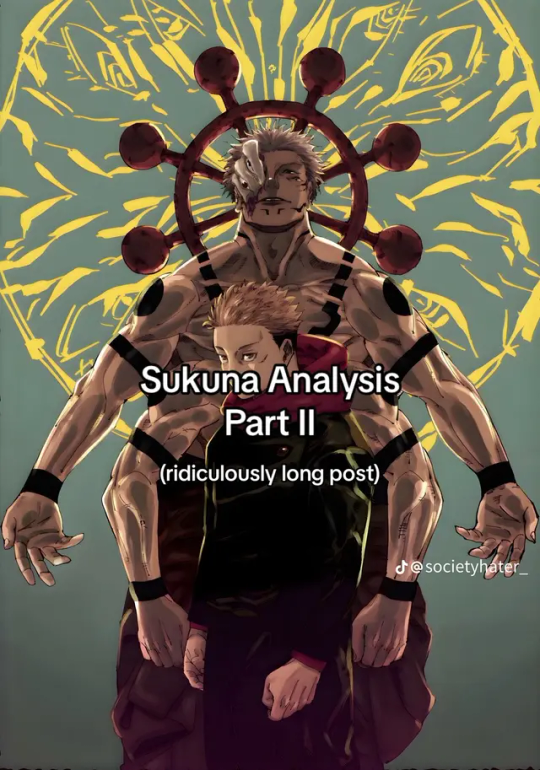
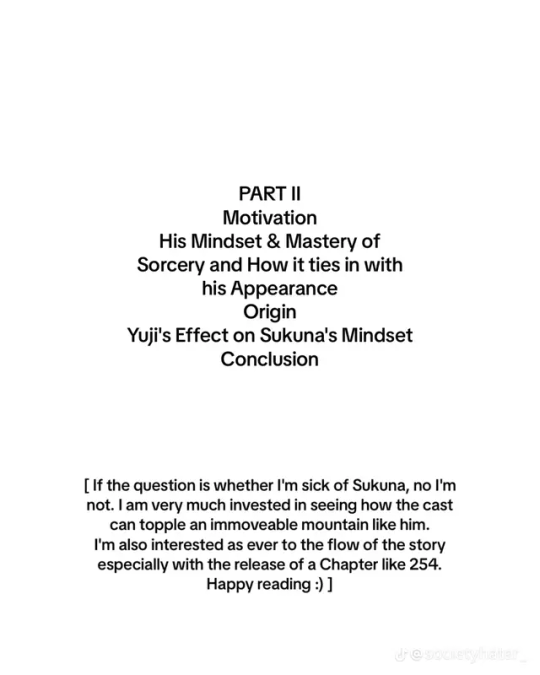
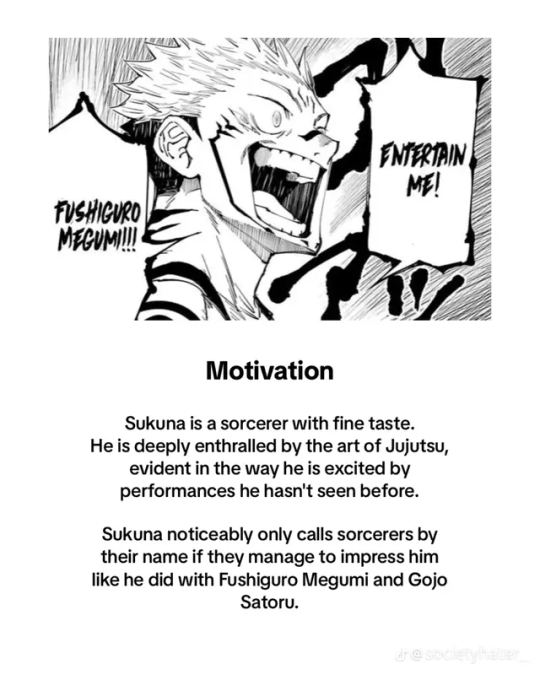
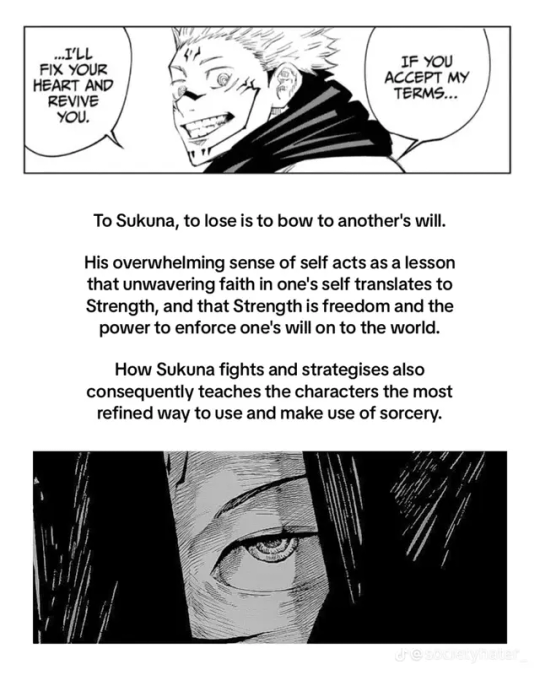

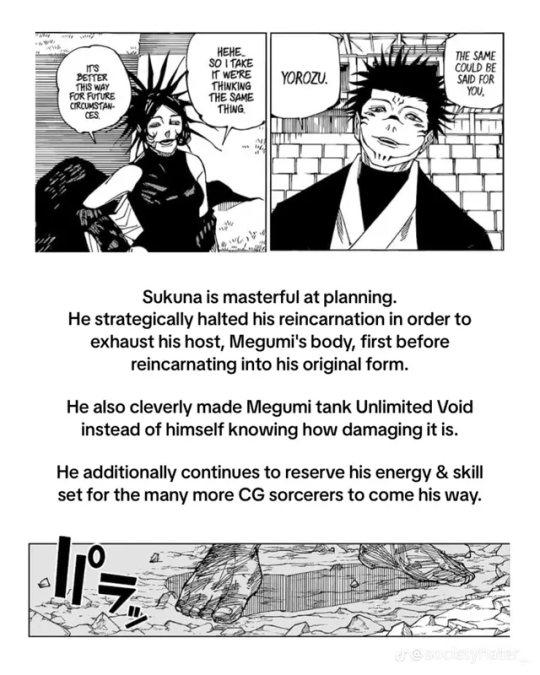


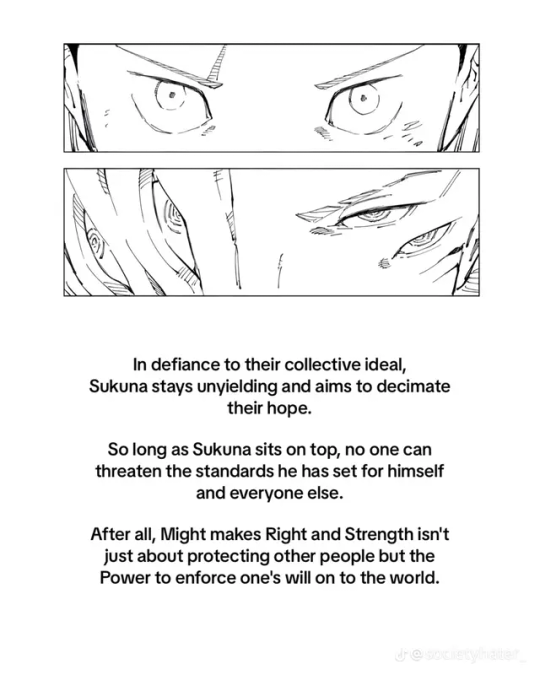
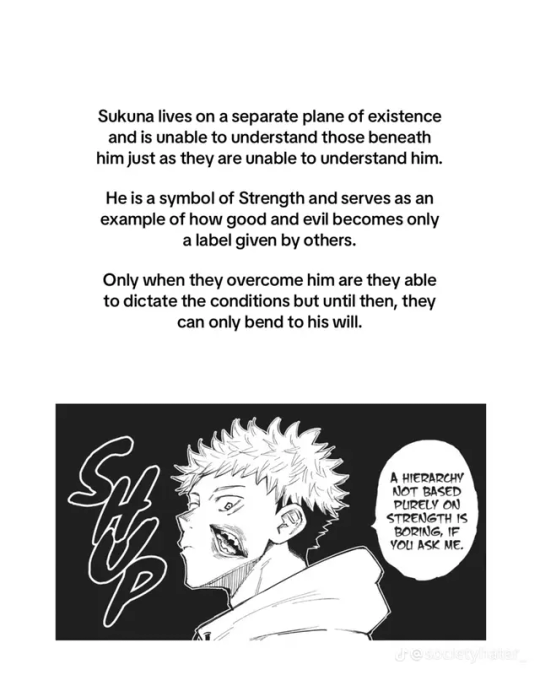
#part 2 of the suku analysis !!#again i recommend checking out her other posts too :]#another banger ueheuehe#jujutsu kaisen#jjk#sukuna#ryomen sukuna#manga analysis#text analysis#character analysis
36 notes
·
View notes
Text
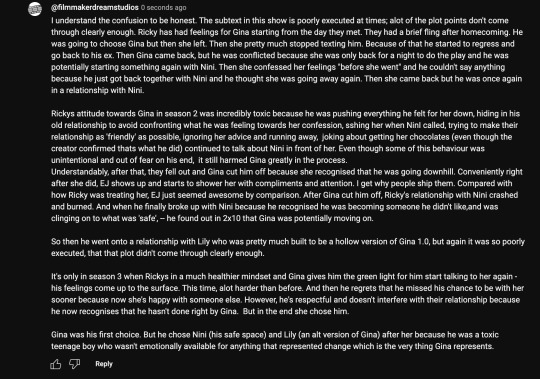
#'regardless of whats happens in the main plot the subtext has always been their love story'#rina#ricky x gina#high school musical the series#tv show#hsmtmts#gina x ricky#subtext#analysis#high school musical the musical the series#ricky bowen#gina porter#sofia wylie#joshua bassett#disney#disney +#hsm the series#youtube comments#reply#text analysis#for a straight couple their storyline is queercoded as hell#coding#high school musical#hsmtmts season 4#hsmtmts season 3#rina week 2023#hsmtmts season 2#hsmtmts season 1
51 notes
·
View notes
Text
Azi’s Zim is Disabled Essay
So there are a lot of different interpretations about Zim being defective that exist. There are a lot of interpretations about what it means to be defective in the first place. I would like to propose that being defective, not only relates to neurodivergence and “non-desirable” behavior (anything that goes against the Irken regime) but also certain physical disabilities, in specific chronic illnesses.
I would like to draw a line here because I firmly believe that the Irken Empire would not give a shit about limb differences. They are technologically advanced (even if their technology is mostly stolen from other species) so, to them, it would be entirely cosmetic and one could simply get cybernetics. However, a problem with the body’s systems cannot be as easily addressed. Thus, Irkens with conditions, like these would be considered defective. Due to their condition, they cannot contribute in the same way as others if they can contribute at all. They would be considered a liability. That’s right, the space fascists are probably also eugenicists (shocking no one). I mean seriously, that’s pretty easy to see. They literally genetically engineer their own people to near perfection.
The only way for a genetic issue like this to happen with the way smeets are made would be because of some kind of cloning error. Anyone reading this probably knows that a popular headcanon about Zim is that he is the product of some kind of cloning error. This is a headcanon that I agree with. So, if Zim is the product of a cloning error what saying that he doesn’t have some kind of invisible disability like a chronic illness.
Putting the lore side, when you look at the Irken Empire, as a satirical representation of America, its greed, its disregard for citizens, and its imperialism, having Zim be disabled makes thematic sense. Zim is actively disregarded by and pushed out of Irken society, many people tend to interpret this as Zim being autistic or another neurodivergent parallel, which I agree with. However, why not take this a step further, why not make a Zim physically disabled?
The closest thing within fandom spaces that I’ve seen to interpreting Zim as disabled, is making Zim autistic or deaf/hard of hearing. However, when this is written it usually has little to no bearing on the plot of whatever is being written. It is almost always a superficial detail of some kind like the occasional mention of Zim having a hard time hearing something, not understanding subtext, or wearing a hearing aid.
I don’t think this is a problem within the Invader Zim fandom; I am well aware that there is just not much fic about disabled characters in which they are actively discussed as being disabled or their disability is important to the plot in some way. I am not blaming anyone for this issue, it’s just the fact that not many people write disabled characters. I think this problem mostly comes from the fact that people are scared of messing it up. Quick message: if you think that you have a good writing idea that involves a disabled character, make sure you do your research, but fucking write it! Even if they aren’t anywhere close to implied to being disabled in canon. What is the point of fanfiction if not to give fans the space to interpret the character however they please?
Apologies for the tangent but it was important. I’m going to shift the topic a bit, onto examining a symptom of chronic illness that I see in Zim within the canon. Specifically, I think that it explains one of the main inconsistencies in Zim’s character.
Many people including myself have noticed the fact that Zim is simultaneously very smart, but also very incompetent at times. This seems to be a contradiction because someone as smart as he is shown to be, logically, shouldn’t be making some of the mistakes that he does within the canon. And I have a plausible solution to this: brain fog. Brain fog is an overarching name for a collection of symptoms that includes an inability to focus and concentrate, confusion, unusually inhibited logic skills, feeling disoriented, as well as trouble remembering and comprehending information. If Zim was intermittently experiencing these symptoms, the inconsistency of him being simultaneously a genius and on many occasions almost completely incompetent would be explained. Brain fog is a symptom of a lot of different things, personally, I interpret it as chronic pain and immunodeficiency for my Zim headcanons and my AU.
Being able to deep dive into Fem Zim’s experience with her disability as she continues her story is important to me. Describing her chronic pain is important to me. Not having a fix for her condition is important to me. Having a character that is not just disabled, but who talks about their disability, has prose dedicated to their symptoms, and has it as an important part of their character building and development is something that I do not see. Let alone anyone with a similar condition to me. Zim is that character for me, whether it’s me going into specifics about Fem Zim’s symptoms within my own AU, or me as a kid, first getting into Invader Zim, and seeing so much of myself in Zim as a character.
You can interpret Zim however you want, I’m not telling you what to do. But I would like to point out that this is an entirely underutilized interpretation that in a fandom that has existed for over 20 years know I do not know of any other genuine instance of.
My only explanation for that is that y'all are cowards. /j
#I'm sorry if this sounds aggressive at all#I've been told that my writing style in essays can come off as aggressive because I speak confidently when writing persuasively#and I guess that's intimidating.#I'm also tired#if this is what I’m going to write like in college than the professors at UPenn better get fucking ready#homestead homestuck housewife#galaxy girls iz#invader zim au#invader zim fanfiction#invader zim#invader zim zim#fem zim#character analysis#text analysis
33 notes
·
View notes
Text
They Cloned Tyrone Review
They Cloned Tyrone is one of my favorite visual works of the past year, and I wish my favorite movie review/analyst channels covered it. There's still time but its unlikely.
The use of blaxploitation aesthetics alongside deceptively in-depth character writing was what really grabbed me and drew me in, alongside the soundtrack and audio mixing, which had just the perfect vibes I was looking for to influence Gore Gambit. Obviously, there is some concerning themes in it.
Anything that encourages hotep speculation automatically gives me bad vibes. While this could be a hyperbolic interpretation of how systemic racism functions, I'm uneasy with the "conspiracy" undertones of the text. To paint every systemic injustice and fallout of what African-Americans currently experience, alongside the social control and denigration of black bodies, as a singular government experiment rather than an intricate and centuries long system, felt misguided at best, and dangerous at worse.
The casual misogyny wasn't addressed or reprimanded by the text, rather placing its redress on the central female character as an "exceptional woman moment". There was no real commentary spared to how misogynoir (both a function of white supremacy and a community issue) feeds into black sex work and prostitution. The pimp was played as a silly but lovable character, with no thought spared to how dangerous, violent, and abusive these men are towards black women, not to mention how those men are often family members or boyfriends.
Overall, it was a strong movie, competently wirtten with ambitious themes that got away from it. I was originally going to post appreciation for its aesthetics onto my art blog, but after giving this a read-through, it's much more suited here.
#dgtor-writes#on matters of representation#writeblr#filmblr#text analysis#they cloned tyrone#blaxploitation#african american writers#african american filmography
4 notes
·
View notes
Text
Don't you love it when you can learn so much about two characters just from a short interaction? In my mind, that is part of what makes good character writing.
Take this example from Minecraft: Story Mode between Gabriel and Ivor:
Gabriel: I see time has made you bitter.
Ivor: And it's made you an even bigger fool!
Granted, there's more to their interaction than this, but I wanted to focus on these lines in particular. It's my favorite part of this scene just because I think it's good dialogue, but the more I look at it, the more I love how much of their character and arcs (both past and present) are packed into these two lines.
So let's analyze it, starting with Gabriel's line.
"I see time has made you bitter,"
Let's look at Gabriel as a character. He was a member of the Order of the Stone, along with Ivor and three others. They were a group of mighty heroes whose greatest and most famous accomplishment was slaying the Ender Dragon, a horrifying beast living in the End. Gabriel is known as the warrior whose sword slayed the beast. Thus, at least in the possible timeline where he retains his memories, he is rather confident and charismatic, playing the role of a hero quite well. He seems impossible to hate or find flaws with. However, we later find out that Gabriel, along with the rest of the Order, lied about killing the Ender Dragon. Rather than take the beast down themselves, they used a Command Block to poof it out of existence. Under this light, Gabriel warps into a cowardly, manipulative, arrogant con man who willingly sells the world a lie, even if he does feel some remorse about it.
With this context, this line has a few layers. It is being said in front of a crowd that doesn't know the truth about Gabriel, so Gabriel is framing himself as the good guy who is understanding and does not hold grudges, versus Ivor, the bad guy who is bitter and holds quite a few. He also twists the narrative into being that Ivor spending so much time alone is what turned him bitter, rather than the truth festering inside him. He lies to Ivor's face about Ivor's own motivations, provoking him even more. Or...you could also see it as Gabriel genuinely not understanding, further painting him as someone who was never actually a savvy warrior but rather an idiot who got lucky. Or it could be argued that this is just a further part of him playing it up for the crowd.
Now let's talk about Ivor's line.
"And it's made you an even bigger fool!"
Ivor was a former member of the Order of the Stone who was written out of their legend entirely. This, combined with the Ender Dragon incident, causes him to seek revenge against the Order by creating a Wither Storm, something he knows the Order can't defeat, thus showing their incompetence, cowardice, and capacity for lying. So when Gabriel says "I see time has made you bitter", he hears both a man who is continuing to lie to the world about how awesome he is and a man who he thought to be his friend but is willing to either A. lie to his face about how he feels or B. genuinely not understand. Because of this, his response can be taken in multiple ways. Firstly, this line is said before we, as an audience, know Ivor's motivation, but given the context we learn, this line actually reveals it. Notice the use of "even bigger". Gabriel, in Ivor's eyes, was already a fool, enough of a fool to, perhaps, act like he defeated the Ender Dragon and thus should be treated as a hero? Even when he is sharing a stage with someone holding all of the cards? Someone who could easily spill the beans if he wanted to? But Ivor's response also changes depending on the interpretation of Gabriel's line. He could be calling Gabriel a fool for daring to insinuate that Ivor has no reason to be bitter other than the time spent alone and in the shadows of history. After all, they both know why, and Ivor doesn't see the point in pretending they don't. He could also be calling him a fool if he genuinely doesn't know why Ivor is bitter. This also turns this response into a hurt rather than just an angry one, as a man he thought was a close friend apparently didn't even care about him enough to know why something like his life and work being forgotten would upset him so much. This could be further egging him on into initiating his revenge plan, as in his eyes, he has no reason to be sympathetic or hear him out.
Do you see how just two lines of dialogue can tell us so much about the characters, specifically with hindsight? This is how dialogue should function. It should work on a surface level, but specifically in pivotal scenes or interactions, the storytelling and character arcs should be woven into what is being said. This is especially the case in text-driven works.
I hope, even if you're unfamiliar with Minecraft: Story Mode, you got something out of this. Happy writing!
#minecraft story mode#mcsm#text post#text#analysis#my analysis#gabbi's analysis#text analysis#media analysis#character analysis#character discussion#character writing#writing#dialogue#dialogue analysis#dialogue writing
6 notes
·
View notes
Note
#hilariously anon the New Mandalorians are the ones who want to determine who is and isnt allowed to be mando (via @verpineshatterrifle)
Bitch, name me a Mandalorian that doesn't play into the No True Scotsman fallacy.
Satine's response to a dying member of a different faction is to hold him in her arms and speak death rites to him in his own dialect. What is that if not respect for another culture within her own? What is it to speak a man's own dialect of Mando'a to him, in your first ever appearance, your first episode, the very establishment of your character, than to respect him as a fellow Mandalorian? What is that action if not acknowledging someone as a member of your own culture, no matter how much you disagree with him?
Meanwhile, the other groups do... what? Shoot the Mandalorians they consider not Mando enough? The Children of the Watch repeatedly had 'not really Mando' responses to people who took off their helmets. Death Watch tried to kill anyone that said Maybe Let's Not Do Imperialism. Jaster tried, I guess, but he also wasn't actually the leader of a particularly large faction. He headed up a White Men's Club of mercenaries. Couple hundred people at most.
Meanwhile, Satine's running multiple planets with a combined populations in the tens of millions (only Manda'yaim and Concordia have official population stats), hundreds of millions if we include Phindar.
And, save for the terrorist group being bankrolled by evil wizards, people generally like her rule. It's impossible to rule as a pacifist unless people agree to let you lead. So we can accept that, other than the colonialist, imperialist, war-hungry terrorist group, most people read her as being accepting of them as Mandalorian if they so chose to be. If they viewed her as too reformist, they maybe left, like the Children of the Watch, but that would be because they didn't view her as Mandalorian.
Now, you can maybe make an argument that other New Mandos had standards that were harsher than Satine's, but as the face of the movement and elected leader for what seems to be twenty years (and we know there were regular elections, because that's what had her stepping down in TCW when Maul took over) we can likely assume that, on average, other New Mandalorians held similar regard for their more war-hungry fellows: Shitty people, but still Mandalorians, for better or worse.
iirc The only New Mando who tried to explicitly "that person is NOT a Mandalorian" somebody was Almec, about Jango Fett... and quite frankly, that sounded, to me, very much like "don't drag us into your war by claiming one of our guys started it" so I can't even blame him.
I'm not really sure who the "True Mandalorians" are, but they cannot be the good guys.
Like. Imagine a political party called "The True Americans/British/French/Chinese/whatever". YOU'D KNOW THEY WERE FASCISTS JUST BASED ON THE NAME.
At the very least, they're a walking "no true Scottsman" fallacy.
Mmmm not quite.
Ironically, the True Mandalorians are basically centrists, by Mando standards. They aren't revolutionary pacifists like the New Mandalorians, but they aren't hardline traditionalists of the 'we need to take over everything and bring back our warlord glories' Death Watch variety.
"…the Mandalorians fractured, giving rise to a chaotic splinter group. They called themselves the 'Death Watch' and followed a barbarian called Vizsla, who believed that the Mandalorians should conquer the galaxy. Vizsla orchestrated a bloody coup against the True Mandalorians, still loyal to a reformed murderer named Jaster Mereel, who held that the Mandalorians were merely highly paid soldiers."
- Count Dooku
Jaster (the man who founded this True Mandalorian political faction) was known as 'The Reformer' due to his attempts to revise Mandalorian warrior culture to be more honorable than the slave-taking, genocidal history they have. I wouldn't call him actively anti-fascist, mostly because he didn't seem to have concerned himself overly much with large-scale government at all, but his political beliefs and attempts to change himself and traditional society definitely weren't fascist. Death Watch, who were very fascist, actively hated him for this.
While I can't find any evidence of True Mandalorians calling themselves 'Haat Mando'ade,' I don't think it's too big of a leap to think that they did when not interacting with people who spoke only Basic. As such, it follows that the way their language works probably had influence on the wording they chose.
The reading I take for the "true" part of that title is a little less "we're the REAL deal and the rest of you suck," and rather more like... 'in pursuit of an ideal.'
A traditional Mando phrase in Legends is "Haat, Ijaa, Haa'it" - "Truth, Honor, Vision"—said when sealing a pact. Other usages of the term haat also seem to have more to do with true in the sense of truth, rather than in the sense of purity.
With the way that Jaster's ideals are portrayed in the oblique sense, it seems most reasonable to say that they mean 'true' as in 'trustworthy, honorable, determined,' the way an old fairytale may use a phrase like 'gallant and true' to describe a knight. It's not fascist, just... flowery and evocative of what they want to be, in comparison to what their people used to be.
#Jaster Mereel#Haat Mando'ade#true mandalorians#star wars#text analysis#mando'a#mandoa#sw legends#phoenix answers asks
407 notes
·
View notes
Text
Como Detectar Redações e Trabalhos Feitos com IA
Nos últimos anos, o uso de inteligência artificial na produção de textos tem crescido exponencialmente, tanto em ambientes acadêmicos quanto profissionais. Este artigo oferece um método detalhado para detectar redações e trabalhos feitos por IA, ajudando professores, revisores e estudantes a manterem a integridade e autenticidade dos trabalhos acadêmicos. Entendendo as Ferramentas de IA na…
0 notes